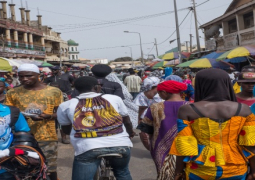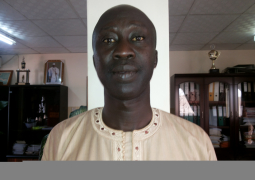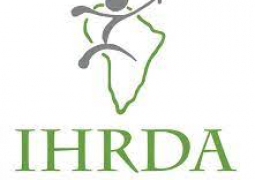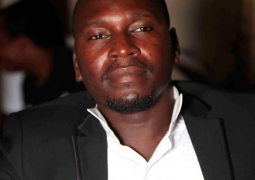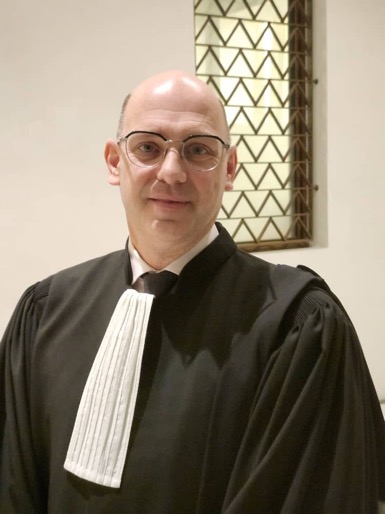
Located in the town of Bellinzona, the court has seized testimonies of witnesses, plaintiffs and accused persons, along with their legal representatives as of January 2024. Sonko’s lawyer explained that his role is not just to prevent conviction of Mr Sonko but to provide what he termed “an effective defense,” which may include acknowledgement of responsibility for crimes being alleged in the court, and pleading for acquittal of his client of charges he faced.
“I am not going to plead for his innocence,” he told journalist Sanna Camara at the court. “That is not my role. I am going to plead his acquittal by demonstrating that the acts committed at the NIA, by NIA agents, do not engage his criminal responsibility, in so far as he never exercised any control or authority over the NIA, either in fact, or in law, and that the victims of torture were neither in his custody, nor under his control at the time of the acts,” he explained.
But whether he will succeed in this remains to be seen, as the tons of evidnce presented by the prosecutor and plaintiffs, weigh high against his client. Mr Currat said Sonko was not able to testify at the Gambia’s truth commission (TRRC) due to circumstances of his detention in Switzerland that prevented him from appearing before the Commission.
“Hence the role of this trial is to give the people of The Gambia, the information related to Sonko’s responsibility as Minister of Interior, or as Inspector General of Police, and not just to prevent conviction,” Currat said in an exclusive interview on the sidelines of the January 2024 sessions.
The trial of Ousman Sonko opened on 8 January 2024, examining the former Gambian Minister of Interior’s responsibility over the numerous crimes against humanity that he is accused of having committed between 2000 and 2016, under the regime of former President Yahya Jammeh. During the three-month marathon session following seven years of investigations, Ousman Sonko was represented by a defense team of four lawyers. Nine plaintiffs testified, represented by their lawyers and supported by TRIAL International, a Swiss based human rights NGO that filed the criminal denunciation against Ousman Sonko in 2017.
Currat noted that some of the private plaintiffs had also changed their statements that were obtained during investigations back in 2017, and materials gathered from the Gambia’s truth commission hearings, to orient them to Sonko. Some of these statements were obtained before the start of the TRRC sessions, and while Sonko had already been in custody in Switzerland. Terabytes of data collected from the TRRC sessions have been available to the Federal Criminal Court of Switzerland through a special cooperation between the Ministry of Justices of The Gambia and Switzerland.
“A lot of them claim to have been tortured at the NIA. torture had occurred and was perpetuated by the Junglers (a unit of paramilitary commandos of The Gambia Armed Forces carrying out acts of killings, disappearances, torture, etc against supposed and real enemies of Jammeh),” said Currat.
Yes, at the beginning of the investigations in 2017, the identities of these Junglers were not made public. Neither had it been public knowledge how the National Intelligence Agency was organized - who was responsible for what. These two institutions were directly answerable to Yahya Jammeh. Thanks to the work of the TRRC, the public learned the details of the work of Junglers and the NIA - their names, their organization, their hierarchy, among others.
According to Mr Currat, the different plaintiffs “understood” that there was no link between what they suffered and Sonko.
“That is why they tried to create that link, and that is exactly what two of the plaintiffs tried to create, by modifying their statements to convict Sonko. These persons’ statements were collected years after investigators obtained statements from the first group of Sonko. That has nothing to do with justice; rather a necessity to have someone guilty for what had happened. I totally understand having someone guilty for something they suffered,” he said, arguing that this someone is not his client.
He said the definition of torture under the Swiss law, exists only for crimes against humanity.
“So it must be a part of a widespread and systematic attack against a civilian population. The first step is to determine if we had such an attack against a civilian population. Second is to determine any form of responsibility of the defendant in those acts,” he insisted.
“One of the elements of the definition of torture is that the victim must be under the custody or control of the perpetrator. And all these people who have testified before the court stated very clearly that they have been tortured at the NIA by the Junglers and NIA agents. None of them said Sonko’s officers were at the NIA torturing them. None of them had said Sonko was physically present. None of them said Sonkpo did anything himself,” he explained.
But did Mr Sonko know about the tortures?
“This is a debate that we had between the defense and prosecution, and that because he was IGP or Minister of Interior, he must have known. To know is not enough to be criminally liable, because if knowledge is enough to be found guilty, then everyone must be found guilty. So the debate is what he knew when he was IGP at the March 2006 foiled coup, or what he knew as Interior Minster about the torture of demonstrators in April 2016 demonstrations,” Sonko’s lawyer explained.
However, Mr Sonko acknowledged to the court that he had some information that he participated in the two Universal Periodic Review (UPR) examinations that happened in Geneva for The Gambia in 2010 and 2014. That was when he received information about violations of human rights and torture, through the UN Special Rappateur on Torture. He said he had “anecdotal evidence of mistreatment of detainees'' by the Police or all the law enforcement bodies, which his lawyer said, are more of “isolated and sporadic acts, and not systematic.”
Rape Allegations
Allegations of multiple rapes against Sonko, according to Mr Currat, hold no credibility as the accused official was out of The Gambia during those times in question.
“The plaintiff claim rape of four to five times per week between 2000 and 2003, which amounts to about 700 or so rapes within the three years. That means that Sonko would have got nothing else than that during this period,” Currat maintained.
He also cited that there are official documents from the UN, that Sonko was deployed at the UN mission to Sierra Leone from 13th January 2001 and to 13th January 2002. That he was already in Sierra Leone a week before, for the enrollment proceeding, and one week after the end, for the end-of-office mission. After that, he reportedly was at the Military Staff College in Nigeria. “Two-thirds of the period she claimed to have been raped found Sonko outside of the country,” said the lawyer.
However, led in a question-and-answer session by her lawyer, the plaintiff maintained that Sonko indeed committed these acts and she had no reason to lie against the man. The lawyer also argued there is a two to three weeks’ vacation allowed to officers while serving in the UN peacekeeping missions, and if Mr Sonko denies he was ever in the Gambia during those times, the court could request records from the UN office to establish whether her client lied or not.
In response to the question asked by the prosecutor what reason the accuser has to lie against Mr Sonko, Currant said it may for the believe that Sonko is responsible for the killing of her husband Almamo Manneh, and when Almamo Manneh would have succeeded in the coup attempt, she’d have been the first lady.
Assassination of Deyda Hydara
On other crimes of assassination of journalist Deyda Hydara, he said, “What is certain is that Sonko was not in the State Guards when the Junglers started operations. In the assassination of Deyda Hydara, it was certain that Sonko left the SG in 2003, and had no links with the Junglers. He was commander at the Defense Headquarters in 2003, Camp Commander at the First Infantry Battalion, based at the Yundum Barracks thereafter, and then left the Army to become IGP after the assassination of Deyda Hydara in 2004.
“I have no doubt that Solo Sandeng died of torture at the NIA. I really sympathize with them,” he said.
However, he said the torture claims of other witneses at the NIA is the truth. He really sympathized with what they suffered and Sonko had admitted those acts they suffered were wrong.


